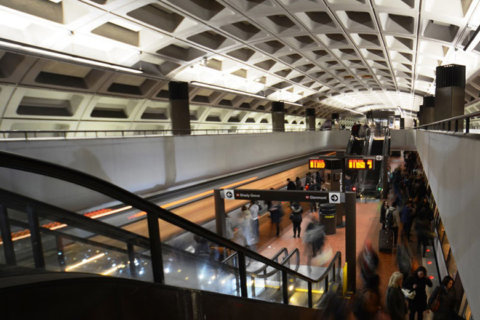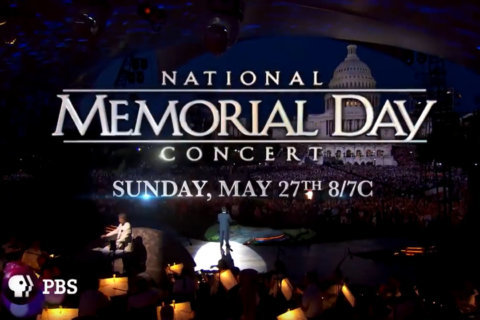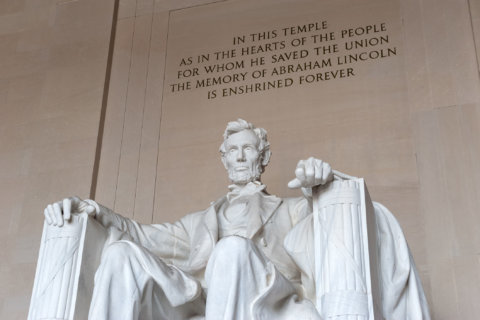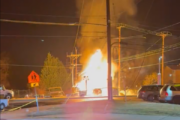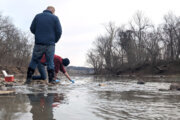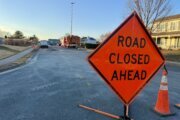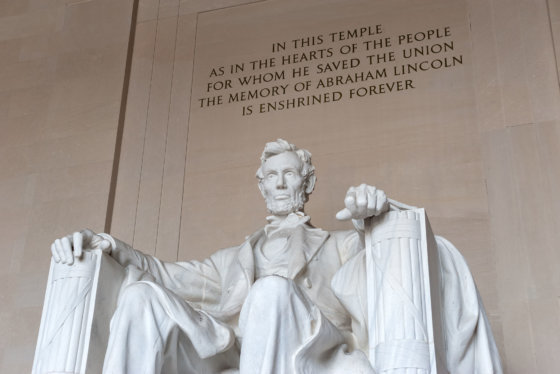WASHINGTON — Memorial Day weekend travel will be especially fraught this year, according to AAA Mid-Atlantic. How bad, exactly? Think “record numbers.”
More than a million D.C.-area residents (1,053,400, to be exact) are expected to be traveling at least 50 miles on the road, in a plane or on trains and cruise ships this holiday weekend — a record high, AAA said. (By comparison, only 748,500 residents traveled during Memorial Day weekend in 2009.)
“We’re not even counting the people who are traveling less than 50 miles,” said John Townsend II, AAA Mid-Atlantic’s manager of public and government affairs.
The breakdown locally, per AAA and the transportation analytics company INRIX:
- Nearly 939,000 automobile travelers are projected this weekend, an increase of 4.9 percent over last year.
- About 85,000 air travelers are anticipated, an increase of 7.5 percent.
- Almost 30,000 travelers using other modes are projected, an increase of 1 percent.
It reflects a similar increase nationally, with a projected 41.5 million total travelers — a nearly 5 percent increase over 2017. Over 36 million of those travelers will be hitting the road.
The heavy travel volume is in part due to the area economy’s strength, according to AAA. And it means road travelers will have plenty of time to discuss regional economics.
“Almost every single one of the major arterials in the Washington metro area will be filled to capacity,” Townsend said.
Thursday and Friday evenings’ rush hour (3:30–7 p.m.) will be particularly rough, he said, as travelers hit the road while commuters leave work. Severe congestion is also likely on Monday, of course, as everyone returns home. (A 32-minute trip on westbound U.S. Route 50 toward D.C. could take two hours and 23 minutes Monday evening, according to AAA. Interstates 270 and 95 won’t be much better.)
And don’t assume you can avoid it all by leaving a day early. Call it holiday weekend creep: People try to beat Friday crowds by starting their trip on a Thursday, for example, but then Thursday becomes the new Friday, as WTOP traffic reporter Bob Marbourg explained.
“When everybody has the same plan — whatever that plan is — then we’ve just time-shifted the experience to a different day or different time,” he said.
Adding to the collective travel migraine: Gas prices are expected to be at their most expensive since 2014. Monday’s average price in the D.C. area was $2.90, up 57 cents from last year.
Travel tips
Depressed yet? Cheer up. The destination is still worth the journey, right? Just strategize and set that alarm clock. Townsend recommends traveling at unconventional hours: leaving before 9 a.m. or after 9 p.m., for instance.
The Maryland Transportation Authority has similar advice for the 348,000 who are estimated to cross the Bay Bridge this weekend:
- On Thursday, Friday, Sunday or Monday, leave before 10 a.m. or after 10 p.m.
- On Saturday, leave before 7 a.m. or after 5 p.m.
Travelers in Virginia could also take a look at VDOT’s interactive travel trends map, Marbourg suggested, to get an hour-by-hour idea of how congested the main roads might be this weekend. However, it’s like playing the stock market: Past performance is no indication of future results, he cautioned.
GPS and navigation apps also can’t hurt in that effort to get to Point B, but keep in mind that The Other Guy probably has those tools, too. “The alternate route that your GPS may point you toward probably has a lot of people who’ve gotten the same message,” Marbourg said.
Also, make sure that the car is ready for the trip. Have it checked “from stem to stern” before leaving, Townsend suggested. Flat tires and dead batteries are two of the most common issues that require AAA assistance, he said (along with locking those stupid keys in the car).
In addition, remember to avoid what he calls the four D’s behind the wheel: drunk, drugged, drowsy and distracted. Play it safe so you can have finally some fun at your destination.
And “pack your patience,” Townsend said.
WTOP’s Kristi King contributed to this report.




